Using Apptica to Streamline Market Research: Case of Interactive Novels
Discover how Apptica's data-driven platform aids market research in niche mobile games like interactive romance novels. This article highlights insights on user engagement, revenue, and app performance metrics to boost your app strategy and uncover top-performing apps.
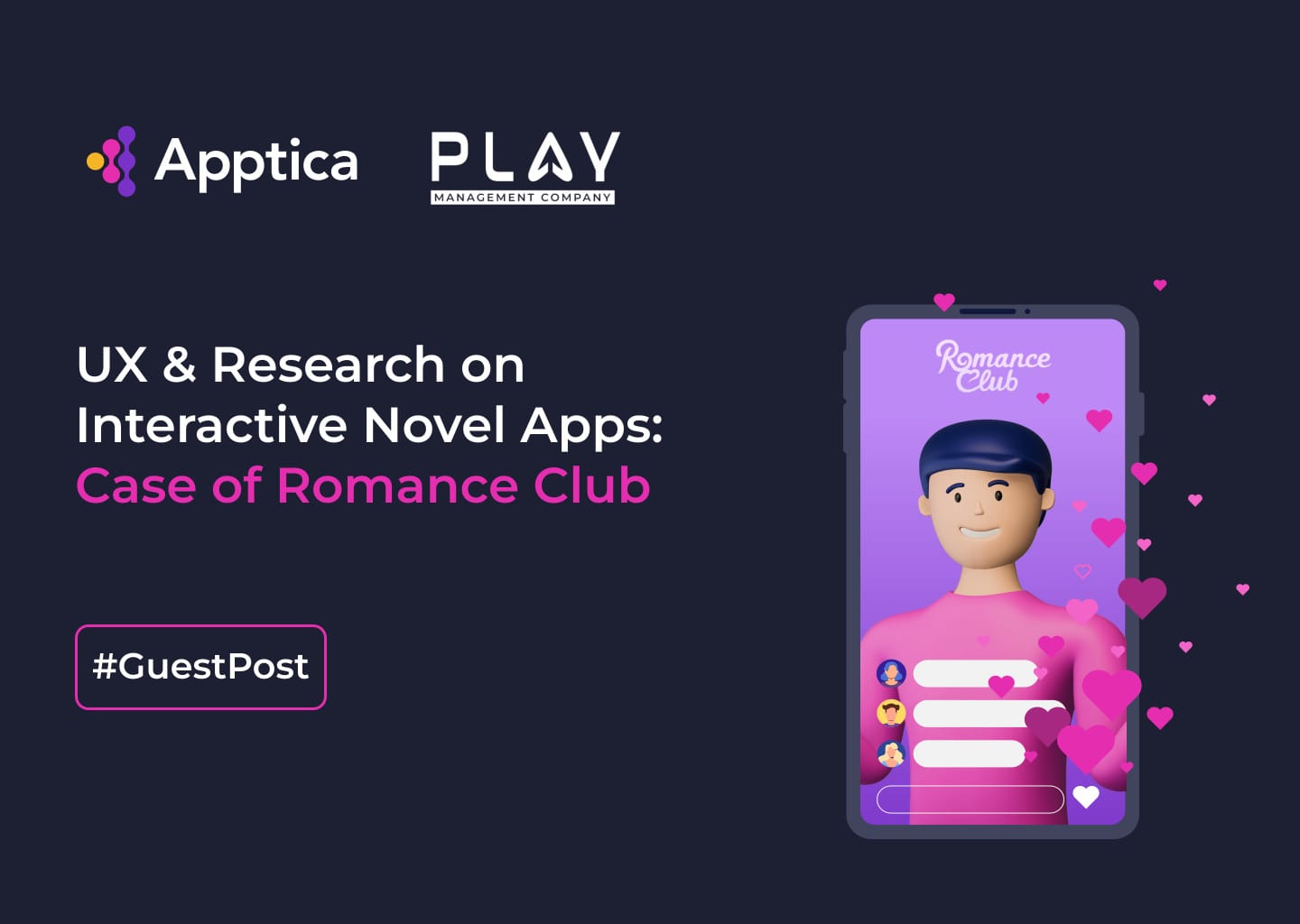
Apptica is a data-fueled platform that provides a wide range of stats on mobile apps, publishers, and advertising from dozens of countries around the world. Since my work is focused on the mobile game industry, it’s imperative that I know which games are on top, the size and location of their player base, and their projected revenue as best as possible.
One of my current projects involves interactive romance novels (an incredibly niche category), and I need to know what that segment looks like, such as the top publishers and the core player base. This seemed like a perfect test case for Apptica as a research tool, seeing how it can deal with my nuanced needs within an esoteric category.
This article will reveal what I learned from my research, and review my experience of using Apptica during that time. So let’s dive in…
Table of Contents
Context and Goals
About Play Management Company
My firm, Play Management Company (PlayMGT), is an agency focused on mobile game licensing and marketing, specializing in cross-platform collaboration campaigns and retail loyalty programs.
PlayMGT represents games from top publishers around the world. Our portfolio includes a wide range of genres, styles, and game types, each appealing to different kinds of demographics and psychotypes.
With the tagline “we connect brands and games,” I need to have the most accurate and up-to-date information on the mobile game market in order to create the best strategies and pitch decks for potential partners.
About Romance Club and Interactive Novels
Romance Club is a collection of 40+ interactive novels, with new stories and chapters released on a regular basis. Stories have different characters, settings, themes, and genres, offering something for everyone.
Interactive novels tell their stories with words, images, and music, letting players make their own decisions at critical moments. Players’ choices drastically affect the outcome of the story, and can lead to completely different scenes, experiences, and endings. Every story can be read countless times to discover all of the paths and endings.
I already know that Romance Club is very popular – it has bespoke merchandise from the novels, and premium items are offered as rewards in retail loyalty programs. However, what I need to understand is how it compares to other interactive novels and romance story apps. This is where Apptica comes in.
Starting With What I Know
As a new user to Apptica, there’s a tremendous amount of information at hand, so I started by looking up Romance Club itself and exploring what Apptica can tell me about it. That turned out to be quite a lot. Apptica actually had even more information than I needed (a wonderful “problem” to have), so these are the key features that made the greatest impact on my research.
Google/Apple Quick Swap – When first searching for Romance Club, I noticed that there were separate entries for each platform. Fortunately, there is a button at the top to go from one to the other. Beyond convenience, this feature made me confident that I was comparing the correct games. In some cases, apps may have different art and even different titles between platforms, so this linking saves a ton of time and anxiety.
App Profile – This is the default tab for apps, and it shows the game’s description, ratings, and gender split. It also shows the release date in every tracked country, when any updates came out, and any places where the app has been removed.
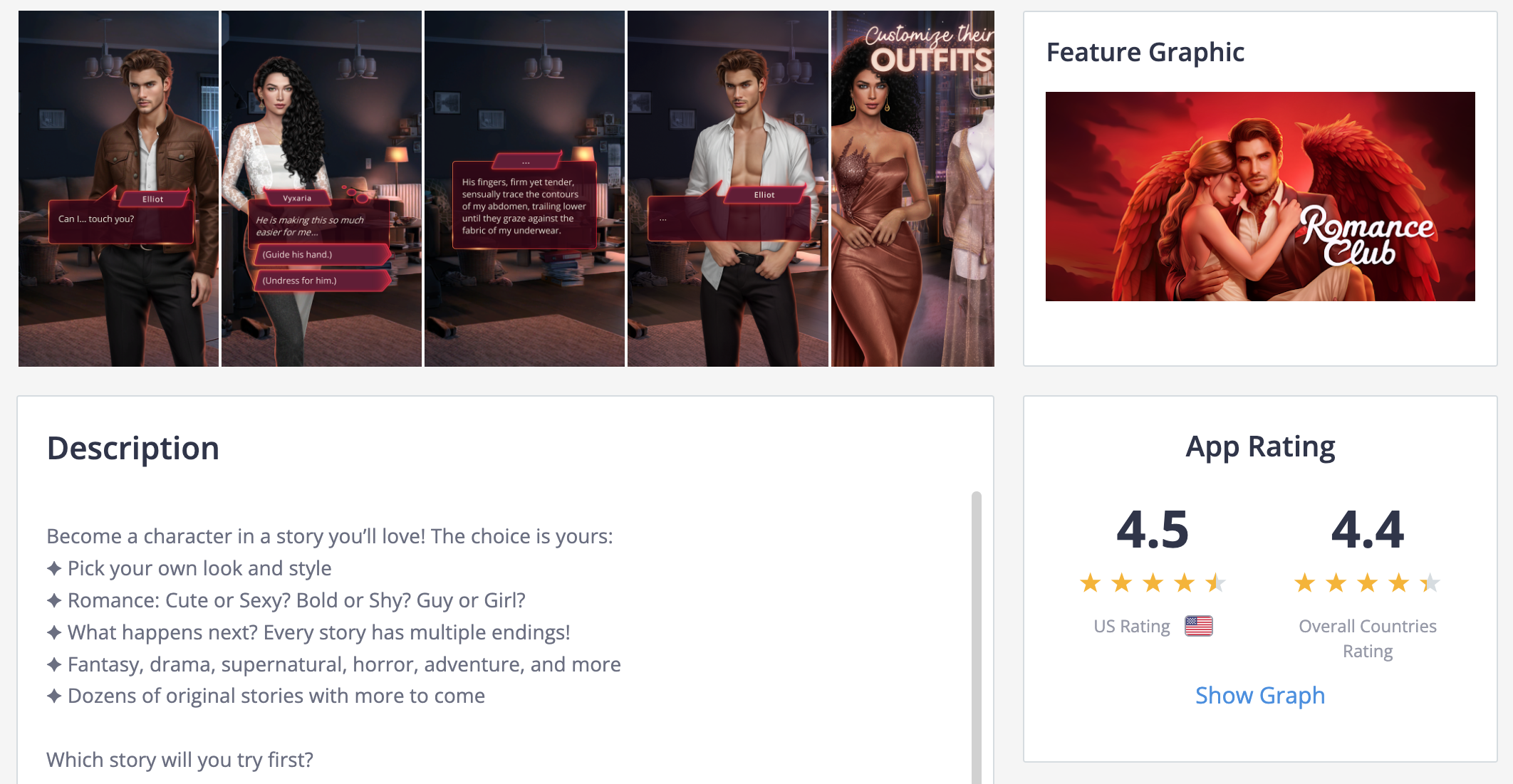
Downloads & Revenue – One of the most important tabs for me, I can see information for the last year, last 90 days, and any custom period (default is last 30 days). Data is separated by country, and includes an Overall category that sums all countries together. I appreciate that after the revenue and the downloads, it also shows the revenue per download. This figure helps me quickly understand the “per person” value at a glance.
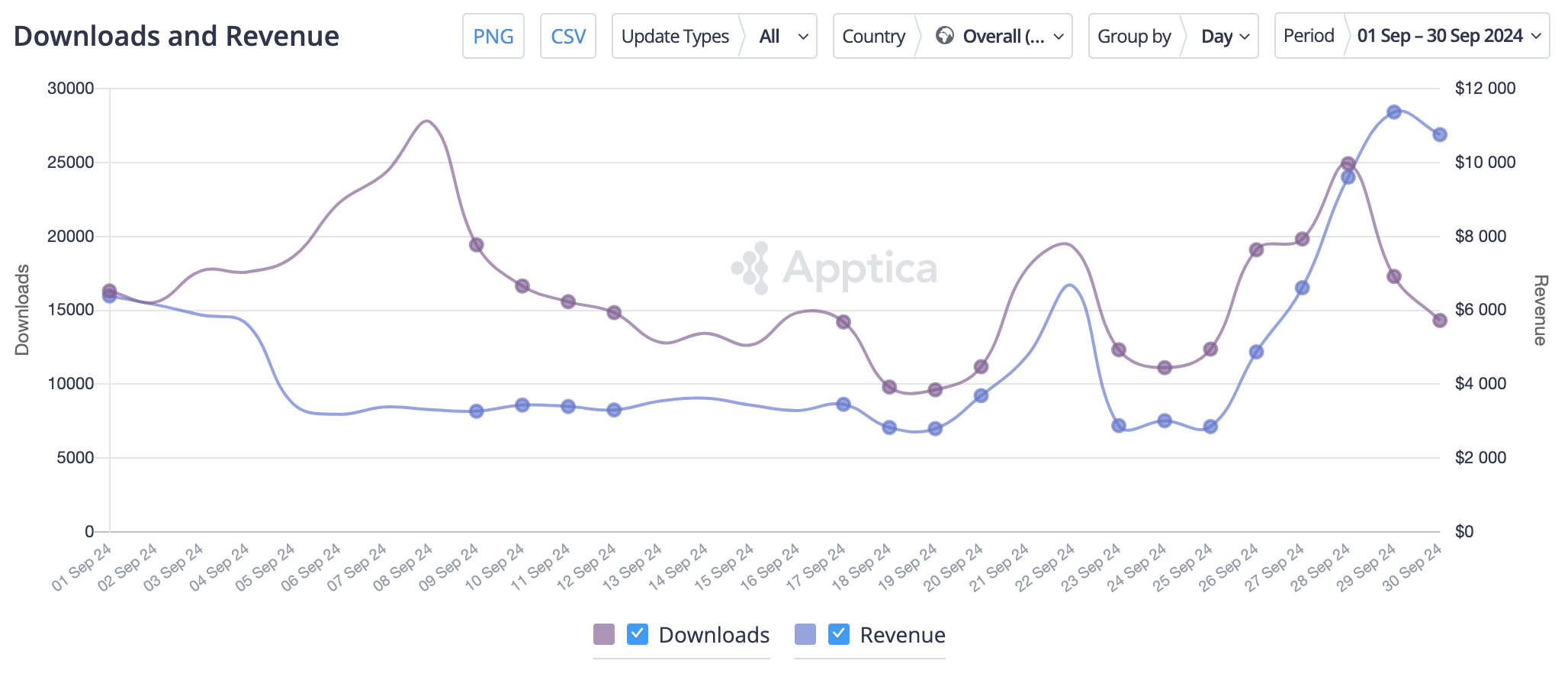
Active Users – The Active Users tab shows me the daily active users (DAU) and weekly active users (WAU), both overall and by country. For each country, I see its percentage of total users, which helps me understand where it is most geographically popular.
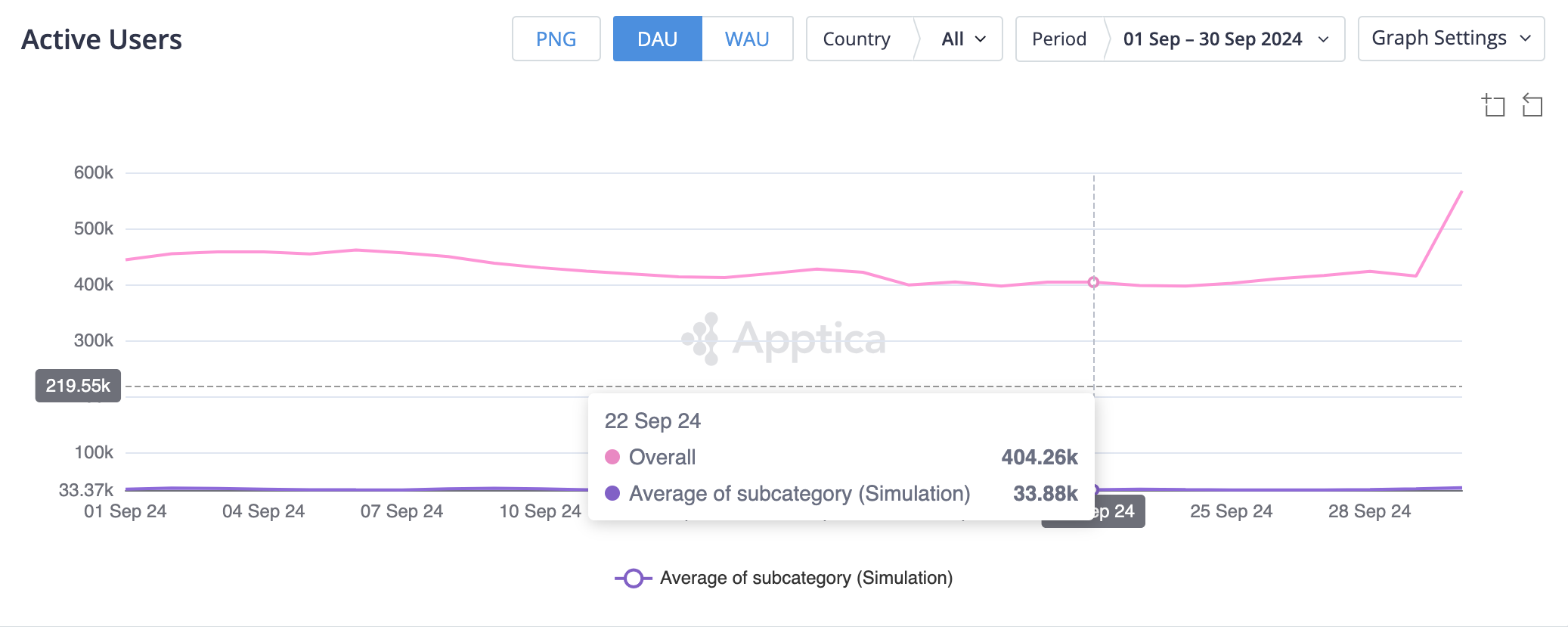
Stickiness – This is the ratio of DAU/WAU, both overall and by country. Understanding the difference between these figures helps me better understand the game’s core audience and how devoted they are to playing.
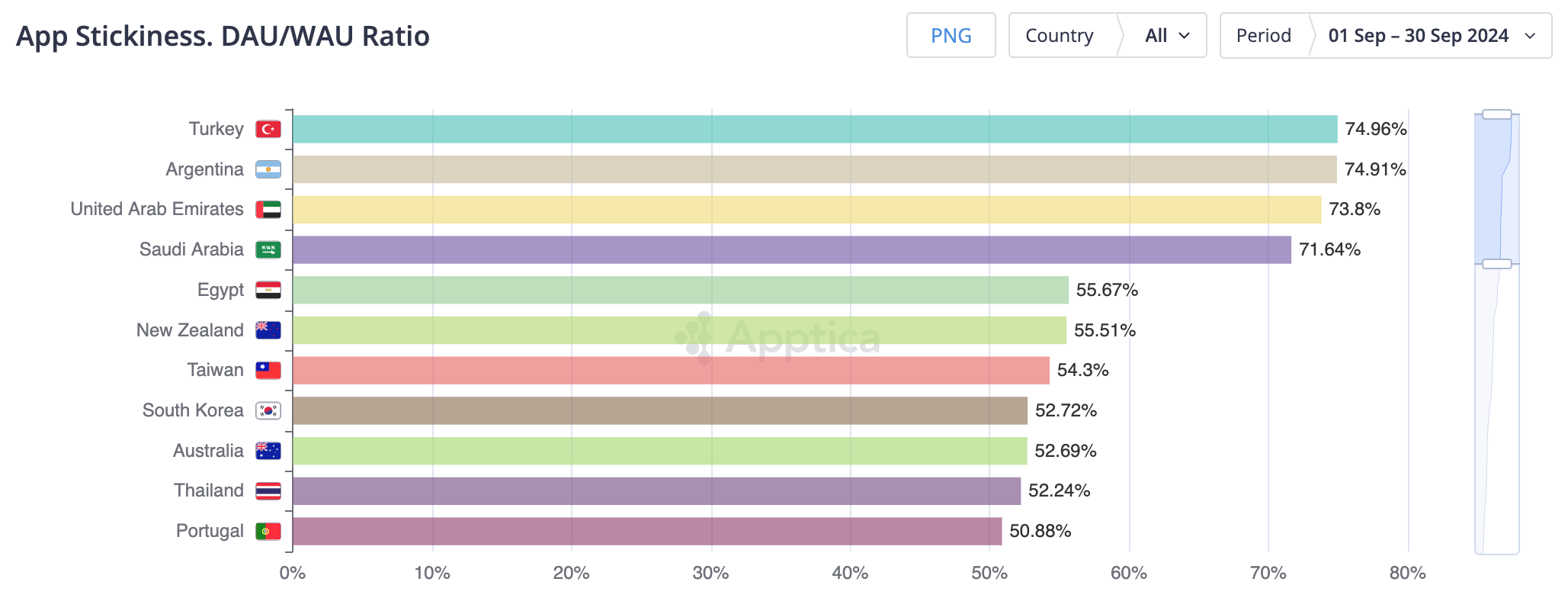
Session Duration – With times ranging from 1 to 23 minutes, this shows me which countries get deeply engaged in the stories and which ones see it as “bathroom reading.” I enjoyed the interactive map because it helps me browse around a geographical region to look for trends.
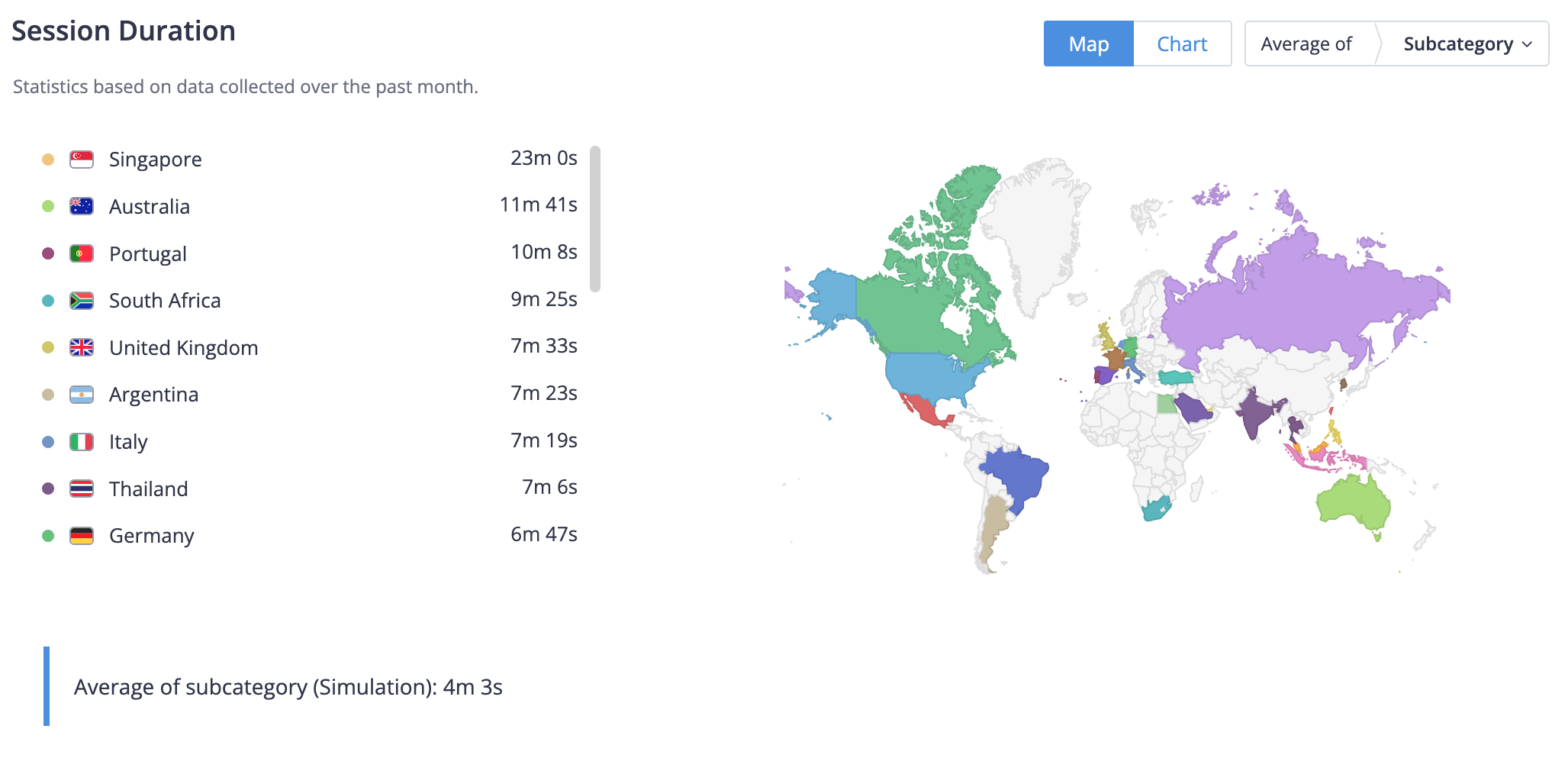
Top Charts – I want to give this tab an honorable mention. Romance Club is tricky to put in top charts because it doesn’t easily fit into most categories. Interactive novels and romance stories are found in a variety of categories, so direct comparison is more difficult. For most research projects, Top Charts is very helpful, but I’m purposely choosing difficult challenges for this experiment.
Finding Competitors
Apptica offers a surprisingly large selection of search options. At the top of an app’s profile, there is a list of tags connected to it. Clicking on any of these will open a list of all apps with that tag. For example, Romance Club includes:
- Games
- Casual
- Adventure
- Storytelling (Visual Novels)
- 2D
- Stylized
- Life Sim
There is also a Similar Apps tab, which splits into Similar Apps, Identified as Similar, and Apps in the Same Genre. The first two are identified by app store categories, while the third one is from Apptica’s custom-made taxonomy. I used a combination of these options to make a custom list of competitors to explore.
Market Analysis and Key Findings
One of the first things I found is that Apptica will give extraordinary amounts of information, but it can’t think for you. A human expert needs to examine and interpret data. To be clear, I think that’s a good thing – tools make work easier, but people make decisions.
As such, here are a few discoveries made from my Apptica experience:
- No two statistics go hand-in-hand. The top 10 apps by Downloads looks very different from the top 10 by revenue. The countries with the longest session durations were not necessarily the most downloaded or the biggest spenders. That’s why a deep, multi-layered analysis is absolutely necessary to understand the market as a whole and any individual titles – there are no shortcuts.
- Google and Apple versions are significantly different. Before starting the research, I thought that separating the platforms was a waste of time because I only wanted aggregate data. However, by seeing them separated, I discovered that Apple versions had far fewer downloads, but much more revenue. This makes sense because Apple products are more expensive and seen as elite status symbols – there are fewer users, but likely have more disposable income.
- The Pareto principle holds true. There are 630 apps in the “Storytelling (Visual Novels)” category for the last month.
- Romance Club is a top performer in interactive novels. Whether looking at the last month or the last year, Romance Club tops the charts in both downloads and revenue. With a list of over 750 titles, that is no small feat. People looking for engrossing stories love it, and businesses that partner with the app gain access to this highly engaged audience.
Closing Thoughts
All things considered, Apptica is a very useful tool for finding information that is otherwise difficult to access. The user interface is clearly laid out, and every feature has videos and/or tips to show how they work.
For my first experience and my first experiment, I’m already more than satisfied. I’m certain that as I gain more proficiency, I will become even faster at getting the information I need to support my work. I plan to keep using Apptica and I look forward to seeing how it grows over time.




